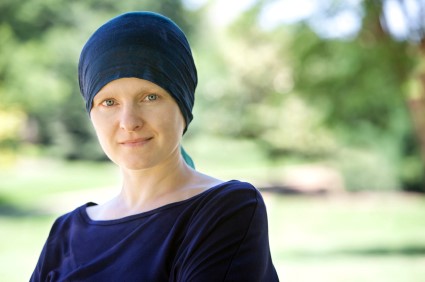
Women with breast cancer who have had breast implants or are weighing up whether to do so, have been impacted by a world-wide recall of certain types of textured breast implants and expanders.
This recall follows research linking some textured implants and expanders with a rare form of lymphoma called Anaplastic Large Cell Carcinoma (ALCL).
Risk of BIA-ALCL
Eighty per cent of Breast Implant Associated Anaplastic Large Cell Lymphoma (BIA-ALCL) cases are detected in the early stage and most of these cases can be treated.
Over the last decade in Australia and New Zealand, 107 women have been diagnosed with BIA-ACLC and tragically four women have died.
The risk of contracting this cancer increases with the degree of texturing. For micro-textured expanders and implants, the degree of texturing is low, and the risk of BIA-ACLC is as small as one case in 84,000.
Australian response
Australia's Therapeutic Goods Administration (TGA) is reviewing the evidence and submissions received from patients and stakeholders including Cancer Council and Breast Cancer Network of Australia.
In September the TGA announced that it had suspended all macro-textured breast implants and expanders from the market with a higher risk of BIA-ALCL. It will continue to review the evidence and make a further decision on these in six months.
Micro-textured breast implants and expanders will continue to be available in Australia and to date there are no known cases of BIA-ALCL in Australia where only smooth devices were implanted.
Cancer Council Victoria’s head of Strategy and Support, Danielle Spence supports the ban of high-risk implants but recognises there is confusion for patients including people with pre-existing implants.
“Uncertainty around which implants are safe is adding stress for women with breast cancer at an already difficult time,” she said.
“People who are concerned are advised to speak with their surgeon about the risk factors and different types of implants. They are also encouraged to call our cancer nurses on 13 11 20 for information and support.”
Breast cancer and breast reconstruction
In 2019, it is expected that nearly 20,000 Australians will be diagnosed with breast cancer.
Surgery to remove the cancer cells from the breast is usually the first stage of treatment and involves either partial or total removal of one or both breasts.
Some people choose to have breast reconstruction surgery, which they do at the same time as the mastectomy or several months later. Surgeons shape a breast using a silicone implant, tissue from another part of their body, or a combination of both.
Immediate breast reconstruction involves first having a temporary tissue expander inserted. Like a small balloon, the expander is gradually inflated with saline over several months to prepare for a permanent breast implant.
There are a number of different types of tissue expanders and breast implants on the market with varying degrees of texture (macro-texture and micro-texture) to keep them in place.
Advice for patients
- If you are considering breast implants, you should ask your surgeon about the benefits and risks of the different types of implants.
- Women who notice any sudden changes around their implant, such as new swelling or a lump, should notify their doctor.
- Experts are not recommending implants be removed unless there is a problem with them.
- Women with implants who are concerned about their risk should talk with their surgeon at their treating hospital. Your surgeon or the clinic that holds your operation record should be able to advise you on the details of the type of implant you have and the benefits versus risks of removal of implants in a healthy person with no symptoms.
- Anyone with questions or concerns about breast cancer, treatment, reconstruction or needs support are encouraged to call Cancer Council’s cancer nurses on 13 11 20.
For more information about the devices recalled visit the Therapeutic Goods Administration (TGA) website.
Keep reading
This episode of the Conversation Hour on ABC Radio Melbourne explores the important role clinical trials play in advancing cancer care and improving outcomes.
Listen to the episode here
Sally was only in her twenties when she found out she may be at high risk of having inherited Lynch syndrome.
Read more
Karen comes from a family with at least three generations of Lynch syndrome, but doesn't let it define her life.
Read more